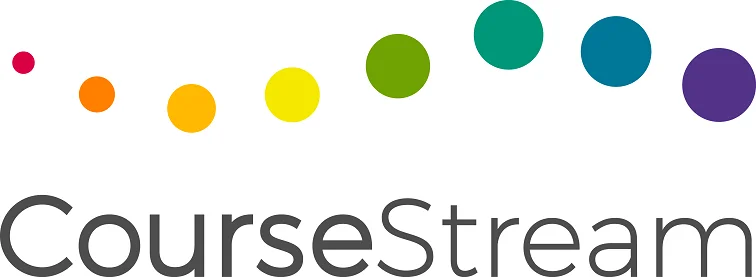Why Study this Counselling Skills I Course?
If you want to learn different counselling methods and essential counselling skills, then this might just be the course you are looking for! This online counselling skills I course gives you the fundamental knowledge and skills needed in counselling such as listening and bonding, reflecting, questioning and interviewing techniques, knowing the negative impact of self-destructive beliefs, overcoming psychological blocks and finding solutions, and familiarizing yourself to the most effective way to end a counselling.
Counselling Skills Training
“This course has been extremely valuable to me as throughout those 5 months my friends all seemed to go through some crisis or other. I have learned so much that I could put into practice and from the responses I have had, it’s been very positive. Tutor feedback was fantastic. All individual answers were given a comment which helped me understand if I missed something.”
- Learn the practical counselling skills required in the counselling process.
- Learn the underlying theories of counselling.
- Understand a wide range of counselling techniques useful for anyone working with people in any form.
Course Aims
- Explain the processes involved in the training of counsellors in micro skills.
- Explain how to commence the counselling process and evaluation of non-verbal responses and minimal responses.
- Discuss both content and feeling, and their appropriateness to the counselling process.
- Demonstrate different questioning techniques and to understand risks involved with some types of questioning.
- Demonstrate how to use various micro-skills including summarising, confrontation, and reframing.
- Demonstrate self-destructive beliefs and show methods of challenging them, including normalising.
- Explain how counselling a client can improve their psychological well-being through making choices, overcoming psychological blocks and facilitating actions.
- Demonstrate effective ways of terminating a counselling session and to explain ways of addressing dependency.
Course Structure
There are 8 lessons in this course:
- Learning specific skills:
- What is Counselling
- Perceptions of Counselling
- Differences between Counsellors, Psychotherapists, Clinical Psychologists and Psychiatrists
- Counselling Theories
- Empathy
- Transference
- Directiveness, non-directiveness
- Behavioural Therapies
- Systematic Desensitisation
- Positive Reinforcement and Extinction
- Goals of Psychoanalytical Approach
- Defence Mechanisms (Repression, Displacement, Rationalisation, Projection, Reaction Formulation, Intellectualisation, Denial, Sublimation)
- Use of Psychoanalytical Psychotherapy
- Psychoanalytic Techniques
- Analytic Framework
- Free Associations
- Interpretation
- Dream Analysis
- Resistance & Transference
- Humanistic Therapy
- Evaluating the Effectiveness of Therapies and Counsellors
- Case Studies
- Methods of Learning
- Micro Skills
- Triads
- Modelling
- Online and Telephone Counselling
- Telemental Health
- Clinical Considerations
- Listening & bonding:
- Scope of Listening and Bonding
- Meeting and greeting
- Creating a Safe Environment
- Location
- Time and Duration of Sessions
- Privacy in Telephone and online counselling
- Showing warmth on the phone
- The contract
- Helping the client relax
- Listening with intent
- Minimal Responses
- Non Verbal Behaviour
- Use of Voice
- Use of Silence
- Case Studies
- Active Listening
- Dealing with Silent Phone Calls
- Reflection:
- Non Directive Counselling
- Paraphrasing
- Feelings
- Reflection of Feeling
- Client Responses to Reflection of Feelings
- Reflection of Content and Feeling
- Case Studies
- Questioning:
- Open & Closed Questions
- Other types of Questions (Linear, Information seeking, Strategic, Reflective, Clarification, etc.)
- Questions to Avoid
- Goals of Questioning
- Identification
- Assessment
- Intervention
- Case Studies
- Interview techniques:
- Summarising
- Application
- Confrontation
- Reframing
- Case Studies
- Perspective
- Summary
- Changing beliefs and normalising:
- Cognitive Behavioural Therapy
- Changing Self-Destructive Beliefs
- Irrational Beliefs
- Normalising
- Case Studies
- Designing a Questionnaire
- Finding solutions:
- Moving Forward
- Choices (Reviewing, Creating, Making choices)
- Facilitating Actions
- Gestalt Awareness Circle
- Psychological Blocks
- Case Study
- Ending the counselling:
- Terminating the session
- Closure
- Further Meetings
- Dependency
- Confronting Dependency
- Chronic Callers
- Terminating Silent Phone Calls
- Silent Endings
- Case Study
- Other Services
Why Study this Counselling Skills I Course?
If you want to learn different counselling methods and essential counselling skills, then this might just be the course you are looking for! This online counselling skills I course gives you the fundamental knowledge and skills needed in counselling such as listening and bonding, reflecting, questioning and interviewing techniques, knowing the negative impact of self-destructive beliefs, overcoming psychological blocks and finding solutions, and familiarizing yourself to the most effective way to end a counselling.
Counselling Skills Training
“This course has been extremely valuable to me as throughout those 5 months my friends all seemed to go through some crisis or other. I have learned so much that I could put into practice and from the responses I have had, it’s been very positive. Tutor feedback was fantastic. All individual answers were given a comment which helped me understand if I missed something.”
- Learn the practical counselling skills required in the counselling process.
- Learn the underlying theories of counselling.
- Understand a wide range of counselling techniques useful for anyone working with people in any form.
Course Aims
- Explain the processes involved in the training of counsellors in micro skills.
- Explain how to commence the counselling process and evaluation of non-verbal responses and minimal responses.
- Discuss both content and feeling, and their appropriateness to the counselling process.
- Demonstrate different questioning techniques and to understand risks involved with some types of questioning.
- Demonstrate how to use various micro-skills including summarising, confrontation, and reframing.
- Demonstrate self-destructive beliefs and show methods of challenging them, including normalising.
- Explain how counselling a client can improve their psychological well-being through making choices, overcoming psychological blocks and facilitating actions.
- Demonstrate effective ways of terminating a counselling session and to explain ways of addressing dependency.
Course Structure
There are 8 lessons in this course:
- Learning specific skills:
- What is Counselling
- Perceptions of Counselling
- Differences between Counsellors, Psychotherapists, Clinical Psychologists and Psychiatrists
- Counselling Theories
- Empathy
- Transference
- Directiveness, non-directiveness
- Behavioural Therapies
- Systematic Desensitisation
- Positive Reinforcement and Extinction
- Goals of Psychoanalytical Approach
- Defence Mechanisms (Repression, Displacement, Rationalisation, Projection, Reaction Formulation, Intellectualisation, Denial, Sublimation)
- Use of Psychoanalytical Psychotherapy
- Psychoanalytic Techniques
- Analytic Framework
- Free Associations
- Interpretation
- Dream Analysis
- Resistance & Transference
- Humanistic Therapy
- Evaluating the Effectiveness of Therapies and Counsellors
- Case Studies
- Methods of Learning
- Micro Skills
- Triads
- Modelling
- Online and Telephone Counselling
- Telemental Health
- Clinical Considerations
- Listening & bonding:
- Scope of Listening and Bonding
- Meeting and greeting
- Creating a Safe Environment
- Location
- Time and Duration of Sessions
- Privacy in Telephone and online counselling
- Showing warmth on the phone
- The contract
- Helping the client relax
- Listening with intent
- Minimal Responses
- Non Verbal Behaviour
- Use of Voice
- Use of Silence
- Case Studies
- Active Listening
- Dealing with Silent Phone Calls
- Reflection:
- Non Directive Counselling
- Paraphrasing
- Feelings
- Reflection of Feeling
- Client Responses to Reflection of Feelings
- Reflection of Content and Feeling
- Case Studies
- Questioning:
- Open & Closed Questions
- Other types of Questions (Linear, Information seeking, Strategic, Reflective, Clarification, etc.)
- Questions to Avoid
- Goals of Questioning
- Identification
- Assessment
- Intervention
- Case Studies
- Interview techniques:
- Summarising
- Application
- Confrontation
- Reframing
- Case Studies
- Perspective
- Summary
- Changing beliefs and normalising:
- Cognitive Behavioural Therapy
- Changing Self-Destructive Beliefs
- Irrational Beliefs
- Normalising
- Case Studies
- Designing a Questionnaire
- Finding solutions:
- Moving Forward
- Choices (Reviewing, Creating, Making choices)
- Facilitating Actions
- Gestalt Awareness Circle
- Psychological Blocks
- Case Study
- Ending the counselling:
- Terminating the session
- Closure
- Further Meetings
- Dependency
- Confronting Dependency
- Chronic Callers
- Terminating Silent Phone Calls
- Silent Endings
- Case Study
- Other Services
Enrol Now
- Experienced Tutor support
- Certificate sent to you
- Online study (Printed notes available)
- Self paced - no set timetable
- 12 months to complete course
From: $25.00 / week for 26 weeks
Get a Free Info Pack!











